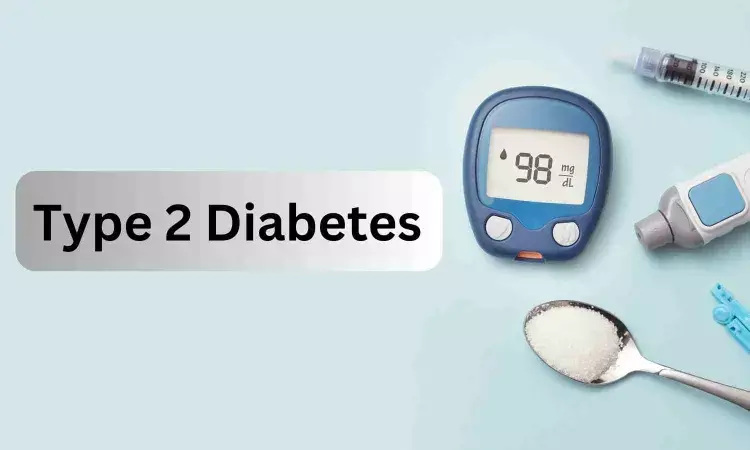- Home
- Medical news & Guidelines
- Anesthesiology
- Cardiology and CTVS
- Critical Care
- Dentistry
- Dermatology
- Diabetes and Endocrinology
- ENT
- Gastroenterology
- Medicine
- Nephrology
- Neurology
- Obstretics-Gynaecology
- Oncology
- Ophthalmology
- Orthopaedics
- Pediatrics-Neonatology
- Psychiatry
- Pulmonology
- Radiology
- Surgery
- Urology
- Laboratory Medicine
- Diet
- Nursing
- Paramedical
- Physiotherapy
- Health news
- Fact Check
- Bone Health Fact Check
- Brain Health Fact Check
- Cancer Related Fact Check
- Child Care Fact Check
- Dental and oral health fact check
- Diabetes and metabolic health fact check
- Diet and Nutrition Fact Check
- Eye and ENT Care Fact Check
- Fitness fact check
- Gut health fact check
- Heart health fact check
- Kidney health fact check
- Medical education fact check
- Men's health fact check
- Respiratory fact check
- Skin and hair care fact check
- Vaccine and Immunization fact check
- Women's health fact check
- AYUSH
- State News
- Andaman and Nicobar Islands
- Andhra Pradesh
- Arunachal Pradesh
- Assam
- Bihar
- Chandigarh
- Chattisgarh
- Dadra and Nagar Haveli
- Daman and Diu
- Delhi
- Goa
- Gujarat
- Haryana
- Himachal Pradesh
- Jammu & Kashmir
- Jharkhand
- Karnataka
- Kerala
- Ladakh
- Lakshadweep
- Madhya Pradesh
- Maharashtra
- Manipur
- Meghalaya
- Mizoram
- Nagaland
- Odisha
- Puducherry
- Punjab
- Rajasthan
- Sikkim
- Tamil Nadu
- Telangana
- Tripura
- Uttar Pradesh
- Uttrakhand
- West Bengal
- Medical Education
- Industry
Timing key for type 2 diabetes drug performance, suggests research

Researchers from the University of Adelaide could be closer to discovering a better way to use metformin, a common type 2 diabetes medication.
Metformin, which has been a cornerstone in diabetes treatment since the 1960s, is typically taken with meals to reduce gastrointestinal side effects but new research is suggesting patients could see improved results if it’s taken before meals.
Dr Cong Xie postdoctoral research fellow in the Centre of Research Excellence in Translating Nutritional Science to Good Health, at Adelaide Medical School, worked with Associate Professor Tongzhi Wu and a team which studied the gastrointestinal effects of the drug on 16 people living with type 2 diabetes who were already using it to treat the condition.
Their findings were published in the journal Diabetologia and are now being used in e-learning by the European Association for the Study of Diabetes (one of the largest international platforms for diabetes research and clinical practice).
“Our results demonstrate administering metformin 30 to 60 minutes before a meal reduces plasma glucose levels while increasing the secretion of the incretin hormone glucagon-like peptide 1 (GLP-1) and insulin levels,” Dr Xie said.
“GLP-1 is a hormone secreted from the gut, which exhibits several actions, including the suppression of appetite, stimulation of insulin, slowing of gastric emptying and the subsequent glucose absorption in the intestine, all of which are beneficial for the control of blood sugar and body weight.
“A number of GLP-1-based drugs are now used clinically for the management of obesity and type 2 diabetes; these drugs also reduce the risk of cardiovascular disease.”
Dr Xie said the plasma GLP-1 levels increased only when metformin was given before the subjects were given a glucose infusion and not at the same time.
“This suggests the levels are affected by changes in the glucose-gut interaction,” he said.
Associate Professor Wu said the study found there was no real difference to the nausea scores of patients between the administration times.
“The findings of our study suggest that the empirical recommendation for ingestion of metformin with meals may have compromised its efficacy to improve blood glucose control after meals,” he said.
“Modification of the timing of metformin ingestion in relation to meals could be a cost-effective approach to improve glycaemic control in people living with type 2 diabetes.”
“We are now planning to extend this research in a real-world setting to examine whether administration of metformin before meals will lead to better blood glucose control in people with type 2 diabetes in the long term.”
Reference:
Xie, C., Iroga, P., Bound, M.J. et al. Impact of the timing of metformin administration on glycaemic and glucagon-like peptide-1 responses to intraduodenal glucose infusion in type 2 diabetes: a double-blind, randomised, placebo-controlled, crossover study. Diabetologia 67, 1260–1270 (2024). https://doi.org/10.1007/s00125-024-06131-6.
Dr Kamal Kant Kohli-MBBS, DTCD- a chest specialist with more than 30 years of practice and a flair for writing clinical articles, Dr Kamal Kant Kohli joined Medical Dialogues as a Chief Editor of Medical News. Besides writing articles, as an editor, he proofreads and verifies all the medical content published on Medical Dialogues including those coming from journals, studies,medical conferences,guidelines etc. Email: drkohli@medicaldialogues.in. Contact no. 011-43720751


